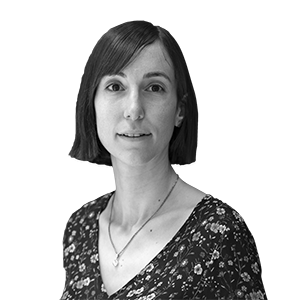Josep Maria Pou is an anti-Semitic Roald Dahl at the Teatro Romea
'Gegant' recreates one of the most controversial moments in the writer's life.


BarcelonaThere are two reasons why Josep Maria Pou (Mollet del Vallès, 1944) threw himself headlong into carrying Giant by Mark Rosenblatt on the Catalan stage. The most selfish reason, admits the actor and director of the Romea Theatre, was discovering that the protagonist was Roald Dahl (Llandaff, 1916 - Oxford, 1990). "Strange and complicated. The role seemed written for me," jokes Pou. The other reason—the main one—is the theme of the show. Giant, which premieres on July 5 at the Teatre Romea as part of the Grec festival, recreates a day in the life of Roald Dahl in August 1983, just after he published an incendiary review against the Israelis in the magazine Literary ReviewIn that text, Dahl referred to the 1982 conflict with Lebanon and said that during the invasion, "everyone started hating Israel."
Forty years have passed since the events, but the conflict between Israel and Palestine makes the show resonate directly with current geopolitics. "It's a theater of urgency, which speaks to what's happening. There's very little difference between what is said on stage and what is said on the street or in each of our homes," says Pou. Giant It is a co-production of Focus and the Grec and is the first translation of the production (directed by Joan Sellent), which premiered last autumn at the Royal Court in London and is currently playing at the Harold Pinter Theatre in the British capital.
Josep Maria Mestres directs the Catalan production, which also features Victòria Pagès, Pep Planas, Clàudia Benito, Aida Llop, and Jep Barceló in the cast. According to Mestres, the show "is a mirror of what we experience every day," highlighting "how we have become accustomed to dehumanization, to hearing figures of the wounded and the dead every day." The performance follows Roald Dahl over a single day, during the preparation of a meal, the meal, and the after-dinner conversation. In addition to the writer, who has recently separated and lives in a house under construction, his lover, the British editor, the American editor, the gardener, and the cook also appear on stage.
Truths and barbarities
Following the publication of the review, a group of Jewish booksellers demanded an apology from Dahl under threat of stopping selling his books. "A huge machinery was set in motion to protect his figure, his image and the sales of The witches, which was about to be published," explains Mestres. "That moment was a prologue to what we would experience years later, with the arrival of cancellation politics," adds Pou. Everything the writer says on stage was actually said in statements and interviews, and only one character (the American editor) is fictional. Truths, but also many barbarities. What you will see on stage is what has been happening in recent months on talk shows and television, but here without shouting or fighting, with politeness and intellectual reasoning," emphasizes the actor.
"The text is brilliant because it doesn't indoctrinate. It doesn't aim to generate a clear position on any of the characters, but rather for everyone to come out and reflect," says Clàudia Benito. One of the play's particularities is that it contrasts Dahl's two editors: both are Jewish, but each has a different way of seeing the situation and reacting to it. "My character will break the supposed peace of the work," Benito says.
Roald Dahl never retracted his words or asked for forgiveness. Matilda and Charlie and the Chocolate Factory He is one of the best-selling English children's book writers worldwide.
